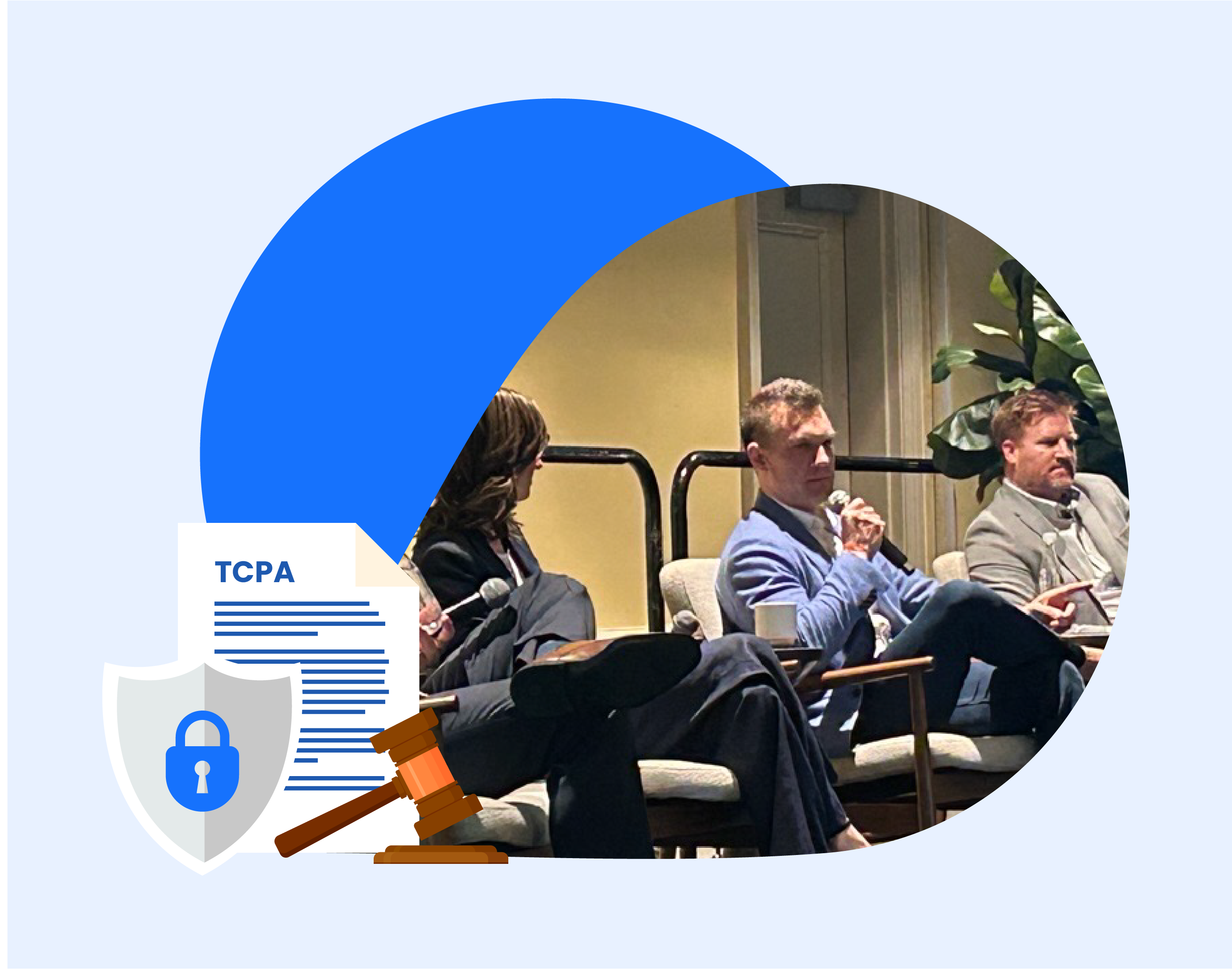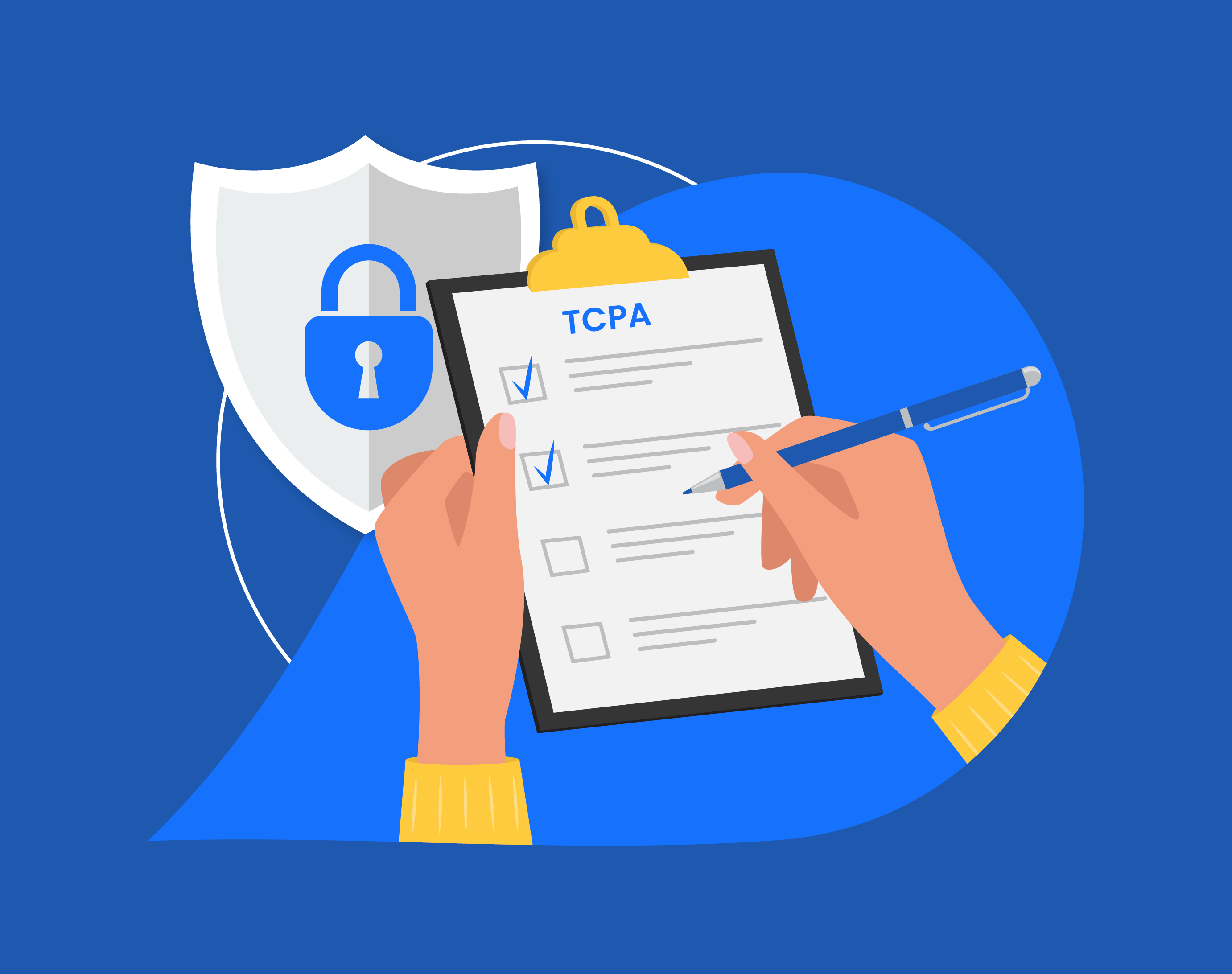The TCPA Rule That Can Lower Your Global Opt-Outs
One notable part of the February 2024 FCC Order is the allowance for enterprises to clarify the scope of a consumer's opt-out request. Specifically, text senders can use a one-time text message within five minutes of the opt-out to confirm if the consumer wants to stop all or just some communication. Let’s look at what this means in practice and how enterprises should be taking advantage of this.
In Brief: the TCPA Opt-Out Confirmation Rules
- Enterprises can send a single text message within five minutes of receiving an opt-out request to confirm the opt-out.
- This text cannot contain any marketing material or promotional content.
- This message can be used to clarify the specific communications the consumer wishes to stop.
- It is possible to use this opportunity to prevent a global opt-out when the consumer really only wanted to stop a single campaign or program.
What Is the TCPA Rule about Opt-Out Confirmation Texts?
The relevant section from the February 2024 FCC Order starts by commenting on the practice of replying to an opt-out message to confirm you have received the revocation of consent. The FCC states:
“…a one-time text message confirming a consumer’s request that no further text messages be sent does not violate the TCPA or the Commission’s rules as long as the confirmation text merely confirms the called party’s opt-out request and does not include any marketing or promotional information, and the text is the only additional message sent to the called party after receipt of the opt-out request.”
In simpler terms, this means that, in most cases, it’s not a TCPA violation to text a consumer a confirmation of their opt-out, as long as the confirmation follows the rules. This confirmation text cannot contain marketing or promotional material. The FCC also commented that this message must be sent within five minutes of receiving the opt-out request.
Why Does This FCC Clarification Matter?
First, the FCC is clearing up that it’s OK to send a confirmation even though the consumer has technically revoked consent to text — as long as the confirmation fits the criteria mentioned above. This makes sense, as many consumers would probably like some notice that their request hasn’t fallen on deaf ears.
But there’s another important piece here that’s easy to miss. The rule also opens up a way to reduce global opt-outs so that consumers can remain engaged. Here are the magic words from the FCC:
“We also adopt our proposal to codify that senders can include a request for clarification in this one-time confirmation text, provided the sender ceases all further robocalls and robotexts absent an affirmative response from the consumer. We limit this opportunity to request clarification to instances where the text recipient has consented to several categories of text messages from the text sender.”
This means that, if you offer multiple types of outreach to consumers, you have an opportunity to keep some engagement going even if the consumer texts “STOP.” By clarifying the consumer’s preferences, businesses can ensure they are only stopping the communications the consumer actually wants to opt out of, rather than all communications. However, failure by the consumer to make the clarification should be treated as a global opt-out of robocalls and robotexts.

This helps businesses maintain a valuable customer relationship, but it helps consumers, too. Engaging in a brief, clear interaction about their preferences can make consumers feel more respected and understood. This can improve the overall customer experience.
How Drips Can Help
The Drips Conversations as a Service platform can leverage the one-time text message allowed by the FCC as part of a suite of tools and tactics to maximize both performance and compliance.
Drips can help retain partial consent where the consumer otherwise would have stopped all engagement from all campaigns. For some use cases, we’ve been able to recover as much as 26% of opt-outs.

Drips makes it easy to keep your outreach safe. Here’s how we can help empower compliance with TCPA consent rules.
AI-Powered Opt-Outs: Our natural language processing (NLP) technology can interpret a wide range of consumer responses, allowing for accurate and effective consent recognition and clarification.
Greater Scalability: Handling consent clarifications manually can be labor-intensive and prone to errors, especially at scale. Drips’ AI-driven platform makes it possible for enterprises to manage these interactions efficiently across large audiences.
Tailored Consent Management: The best way to manage consent preferences depends heavily on your industry, outreach strategy, and many other factors. Drips’ managed service approach gives you a team of outreach professionals to develop a custom consent management plan just for you.
Schedule Your Strategy Session
Understanding and implementing these new rules can be complex, but Drips is here to help. Schedule a meeting with our team to explore how our solutions can enhance your outreach efforts while empowering compliance with the latest TCPA regulations.
Disclaimer: This article and all information contained in it are for educational and informational purposes only. Neither Drips nor any of the writers of this article are law firms or attorneys, and nothing herein should be construed as or relied on as legal advice. Drips and the authors herein disclaim any obligations relating to the timeliness or accuracy of the information contained here. No warranties should be implied. Although intended to be current and accurate, regulations and court rulings, as well as interpretations of the same, are always changing and we recommend consulting with your own counsel.







